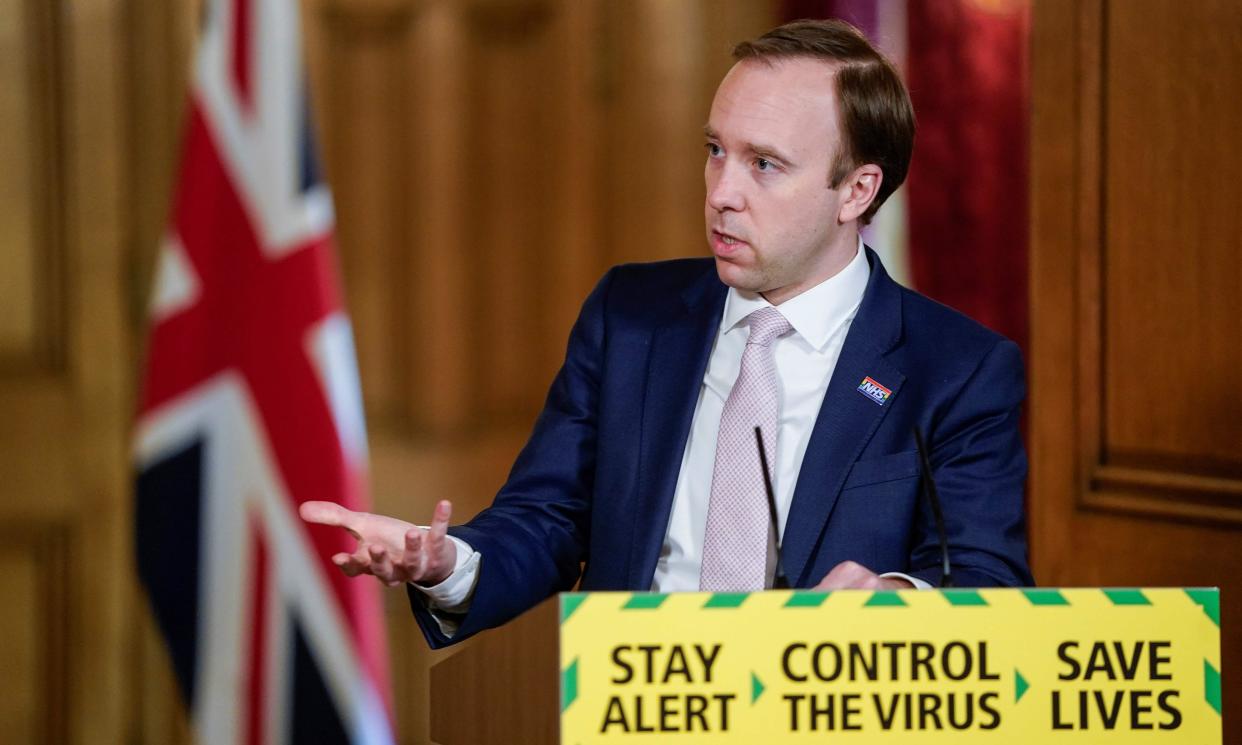Whatever the merits of the Hancock leaks, this much is clear: Britain needs to speed up its Covid inquiry

The delay to the inquiry into Britain’s handling of Covid merits an inquiry of its own. The allegations in the Daily Telegraph about the then health secretary, Matt Hancock – including that he dismissed expert advice to test anyone entering a care home for coronavirus at the start of the pandemic – may not be sensational. (Hancock has strongly rejected the claim.) Hindsight is a poor guide to judgments made in conditions of chaotic uncertainty. Whether the infection risk to care homes was higher from hospitals than from community contacts was surely debatable. Yes, around 20,000 care home deaths were recorded in just four months, but only an official inquiry can tell us why.
Related: What do Matt Hancock’s WhatsApp messages show? Not what the Telegraph wants us to see | Devi Sridhar
While Britain’s public administration appears in a state of shambles, its obsession with public inquiries is booming. Huge sums have been allocated into probing past injustices, tragedies and scandals: Bloody Sunday, Hillsborough, Grenfell, infected blood, the Manchester Arena attack, Post Office computers and Boris Johnson drinks parties. Too often, these take far too long and consume too much money.
The Covid inquiry particularly matters because there is every likelihood of a pandemic being repeated. Another bout of bird flu is already on the horizon. We need to know why test-and-trace was such a fiasco. Was a gargantuan sum of money wisely spent? Which aspects of lockdown saved lives, and which merely made the authorities feel good? What went wrong with liaison between hospitals and care homes? How corrupt was the procurement regime?
A sensible government would have asked itself these questions long ago – and digested the answers. Sweden took a radically different approach to lockdown from Britain and was much criticised for its minimalism. Yet when the crisis ended, Sweden duly held an immediate inquiry into its actions and, a year ago, produced an 800-page report. Britain, instead, has spent 18 months dithering over what should be the terms of reference, while lawyers and consultants lick their lips. They eagerly await a 10-year bonanza.
In the matter of Hancock’s texts, the relationship between a nationalised NHS and a localised and privatised care sector is an urgent problem for the welfare state. The Cameron government’s austerity programme slashed public-sector care provision. Local councils were driven to dispose of their homes and private equity swept in. One report claimed that in many cases, 16% of bed fees were now going on servicing debt and 15-30% on “rent”, swirling round a cobweb of off-shore companies. It is one reason why hard-pressed managers responded to Covid with extreme caution, adding to the misery and shortening the lives of thousands of people.
The danger now is that any progress in handling future epidemics will be met with ministerial stonewalling about “awaiting the outcome of the Covid inquiry”. The same will apply to the wider issue of reforming the failed relationship between hospitals and care homes. The Hancock allegations can be thanked for at least focusing attention on that breakdown. The inquiry should start now and end this year.
Simon Jenkins is a Guardian columnist

 Yahoo News
Yahoo News 
